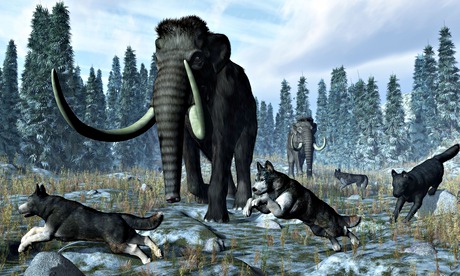Scientists are to attempt to extract DNA from bones thought to belong to a 35,000-year-old Neanderthal. The jaw fragment, from Kent's Cavern, Devon, was originally thought to be human, but experts now think it came from a Neanderthal, a predecessor of Homo sapiens.
'Neanderthal DNA would show up clearly in tests,' said Chris Stringer, director of the Ancient Human Occupation of Britain (AHOB) project. 'However, we need a bit of luck as the DNA may not have survived.' The study will form part of the second phase of the AHOB project, following a £1m grant from the Leverhulme Trust.









